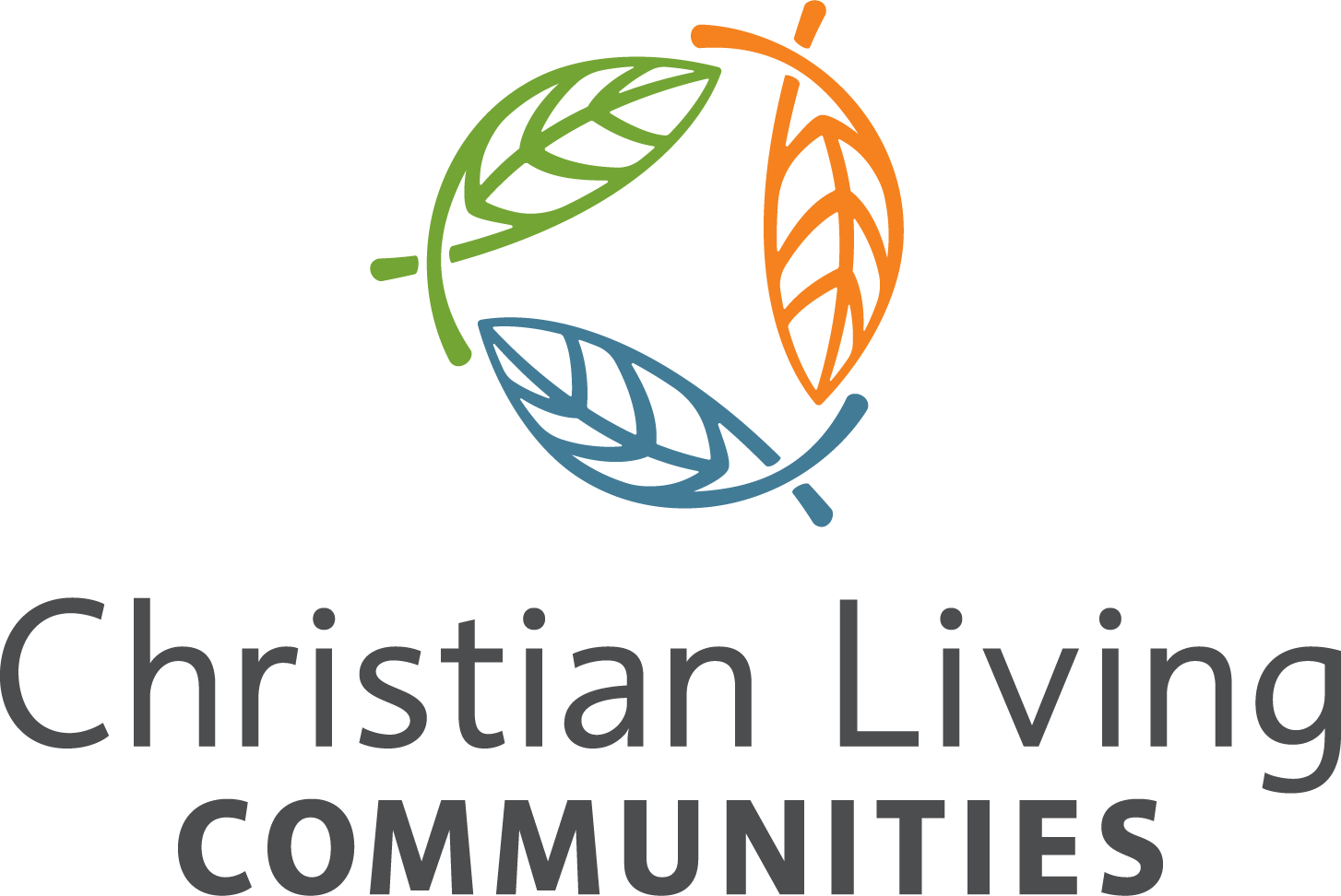This November, Christian Living Communities joins with organizations across the country to celebrate and support family caregivers of older adults.
As your family progresses through the various stages of life, you may find yourself acting as a family caregiver for an older adult. You are not alone. According to a 2020 AARP report, more than 41 million Americans are providing care to a spouse, family member or friend over the age of 50. Here are a few resources and services available to family caregivers.
Support Groups and Agencies
It is the desire of many older adults to age-in-place, meaning they want to live out their days in the home and the community that they know and are familiar with. When physical or cognitive decline leads to a need for additional support for the tasks of daily living, family members, or sometimes a spouse, will want to do all they can to help their loved one. Often this can lead to the caregiver sacrificing their own mental and physical wellbeing, leading to caregiver burnout. Agencies, like the Caregiver Action Network, provide information, advocacy, and support for family caregivers. You can find a comprehensive list of national caregiver resources and organizations on their website here.
Many caregivers find themselves socially isolated. Compassion fatigue and caregiver burnout are also common among family caregivers. Joining a local support group in your area can be a great benefit. Sharing struggles with others who understand what you are going through will help you feel less alone. You can ask questions and share advice on how to handle difficult situations that arise. AARP has a list of support groups by state. You can also search ‘caregivers support group’ on Facebook to find online support groups.
Respite and Adult Day Care
There are times as a caregiver when you need to have someone else step in for you. Respite and Adult Day Services provide relief to caregivers so they can go to work, handle personal business, or travel. Typically, Adult Day Care is a program, either full-time or part-time, designed to provide socialization, care, and stimulation to older adults on a regularly scheduled basis. Respite care is often short-term and temporary, providing caregivers a break a few hours, a day, or a week.
When considering either Respite or Adult Day for your loved one, you’ll want to take a tour, meet the care partners who will be providing support, and make sure the center is licensed and certified by a state agency, such as the department of health. Here are a few questions you will want to ask:
- Do they charge by the hour, day, or week?
- Is there a minimum amount of hours or days you need to commit to?
- What activities or services are included in the costs?
- Does the center provide the appropriate level of care, such as medical assistance, therapy, health monitoring, or specialized care such as dementia support?
Home Care
The COVID19 pandemic has magnified the day-to-day challenges of caring for an aging parent, spouse, or family member. School or work closures complicate responsibilities. Many parents with school-age children who care for their parents (sandwich generation) are also now working from home. In addition, some areas are unable to offer Respite or Adult Day services right now due to local health agency restrictions. Enlisting the help of a Home Care Agency, such as Rhythms Home Care is a great option.
Home care services are customizable, so you can determine what help you need and how often. Perhaps you need someone to help with laundry, meal planning a couple of times a week, or you might benefit from having someone help you a few hours a day every day, or just on the weekends. Some agencies are able to provide medical services while some are not. You can download this free guide to selecting the right home care agency for you and your loved one here.
Long-term Care
While helping your loved one age in place, it is a good idea to plan for the possibility that they may need to move to a senior living community at some point in the future. Since you might not know what level of care your loved one will need when and if the time comes, consider looking for a senior living community, like Christian Living Communities, that offers a continuum of care. Many of our communities are Life Plan Communities which means all levels of care (Independent Living, Assisted Living, Skilled Nursing, and Memory Care) are on one campus, easily accessible by all residents should a change in health need occur.
It is possible at some point the cost of home care may become such that living in a community may be more cost-effective. Navigating costs and understanding the options and needs of your loved one can be overwhelming. Download our free cost comparison guide here.
The mission of Christian Living Communities is to enrich the quality and dignity of life for older adults through services and care that reflect Christian love, respect, and compassion toward each individual. We know there is a lot to think about when choosing the right kind of community for your loved one, and our goal is to be accessible to residents and family members who care for their loved ones. Contact us for more information or use our community finder to find a community that is right for your family.


